Legal and Tax Implications of Selling a Business in Canada
Tax Implications of Selling a Business in Canada
Understanding the legal and tax implications of selling a business in Canada is crucial. These complexities can lead to costly surprises and potentially jeopardize the transaction.
You've worked hard to build your Canadian business and are considering selling:
- You've prepared your financials, and
- understand the importance of timing,
- and boosting valuation.
But before you finalize any deal, it's crucial to understand the legal and tax implications of selling a business in Canada. These can be complex, and failing to address them properly can lead to costly surprises and even jeopardize the entire transaction.
This article provides a general overview (part of a 5 guide series to help you prepare before you hang the for sale sign. Check out the first article of this series that take you on a deep dive of timing the business sale and the steps you need to take).
Note: It is essential to consult with qualified legal and tax professionals for advice tailored to your specific situation.
Key Takeaways: Legal and Tax Considerations
- Legal and tax considerations are crucial for a successful business sale.
- Consult with qualified legal and tax professionals for tailored advice.
- Understand the different types of sale agreements and their implications.
- Plan ahead to minimize your tax liabilities.

Why Legal and Tax Considerations Matter When You Say: Sell My Business in Canada
Navigating the legal and tax landscape is critical for a smooth and successful business sale:
- Protecting Your Interests: Legal agreements and proper due diligence protect your rights and ensure a fair transaction.
- Minimizing Tax Liabilities: Understanding the tax implications allows you to implement strategies to minimize your tax burden.
- Avoiding Legal Disputes: Clear and comprehensive agreements prevent misunderstandings and potential legal disputes down the road.
- Ensuring Compliance: Adhering to all relevant regulations ensures a legally sound transaction.
Key Legal Aspects of a Business Sale
Here are some key legal aspects to consider:
Due Diligence
Due diligence is a thorough investigation of the business by the buyer. As a seller, you'll need to provide access to various documents and information, including financial records, contracts, and legal agreements. Being prepared for due diligence is crucial for a smooth process.
Types of Sale Agreements
There are two main types of sale agreements:
- Asset Purchase Agreement: The buyer purchases specific assets of the business (e.g., equipment, inventory, customer lists).
- Share Purchase Agreement: The buyer purchases the shares of the company, effectively acquiring the entire business entity.
This type of agreement has significant legal and tax implications for both the buyer and the seller.
Representations and Warranties
These are statements made by the seller about the business. They provide assurances to the buyer about the business's condition and operations. It's important to ensure these statements are accurate and complete.
Non-Compete Agreements
These agreements restrict the seller from competing with the business for a specific time and within a defined geographic area.
Key Tax Implications of Selling a Business in Canada
Here are some key tax considerations:
Capital Gains Tax
When you sell a business, you may realize a capital gain (the difference between the sale price and the adjusted cost base of the assets or shares). In Canada, only 50% of capital gains are taxable. For more information, click here for capital gains deductions.
Principal Residence Exemption
If your business operates from your home, you may be eligible for the principal residence exemption, which can exempt a portion of the capital gain from tax.
Lifetime Capital Gains Exemption (LCGE)
This exemption allows eligible small business owners to exempt a certain amount of capital gains from tax upon the sale of qualified small business corporation shares.
Tax Planning Strategies
Several tax planning strategies can help minimize your tax liability when selling a business. It's crucial to consult with a tax advisor to explore these options.
Example: Selling shares of a qualifying small business corporation can potentially benefit from the Lifetime Capital Gains Exemption, significantly reducing the tax payable on the sale. However, strict eligibility criteria apply.
Khaled Baranbo has seen many business owners miss out on significant tax savings by not consulting with a tax advisor early in the sale process. Proper planning can make a huge difference in the net proceeds you receive from the sale.
Preparing for the Legal and Tax Aspects of the Sale
Here's a checklist to help you prepare.
Legal and Tax Preparation Checklist:
| Area | Action | Notes |
|---|---|---|
| Legal Counsel | ☐ Engage a lawyer specializing in business sales and acquisitions. | Your lawyer will review and negotiate the sale agreement, conduct due diligence on the buyer, and advise you on all legal aspects of the transaction. |
| Tax Advisor | ☐ Engage a tax advisor specializing in business sales. | Your tax advisor will help you understand the tax implications of the sale and develop strategies to minimize your tax liability. |
| Due Diligence Documents | ☐ Gather all necessary documents for due diligence, including financial statements, contracts, licenses, permits, and legal agreements. | Being prepared for due diligence will streamline the sale process and demonstrate your organization and professionalism. |
| Type of Sale Agreement | ☐ Determine the most appropriate type of sale agreement (asset or share purchase) with your legal and tax advisors. | The type of agreement will have significant legal and tax implications. |
| Representations & Warranties | ☐ Carefully review and understand all representations and warranties in the sale agreement. | Ensure that all statements are accurate and complete. |
| Non-Compete Agreement | ☐ Negotiate the terms of any non-compete agreement with your lawyer. | Consider the duration and geographic scope of the agreement. |
| Tax Planning Strategies | ☐ Work with your tax advisor to explore potential tax planning strategies, such as the Lifetime Capital Gains Exemption or other tax deferral options. | Early planning is crucial for maximizing tax savings. |
| Obtain Necessary Approvals | ☐ Ensure all necessary regulatory approvals are obtained (if applicable). This might include approvals from government agencies or industry regulators, depending on the nature of your business. | Failing to obtain necessary approvals can delay or even prevent the sale. |
Example: A manufacturing business selling its assets might need to consider environmental regulations related to the disposal of hazardous materials. Proper documentation and compliance are crucial for a smooth sale.
Khaled Baranbo, Certified Business Broker in Toronto, recalls a situation where a business owner failed to properly address a tax liability before selling his business. This resulted in a significant portion of the sale proceeds being used to cover the back taxes, significantly reducing the owner's net gain.
Recap: Legal and Tax Implications
- Legal and tax considerations are crucial for a successful business sale.
- Consult with qualified legal and tax professionals for tailored advice.
- Understand the different types of sale agreements and their implications.
- Plan ahead to minimize your tax liabilities.
Next step:
Now that you understand the legal and tax aspects of selling your business, it's time to consider the professionals who can guide you through the process. Click here to learn more about finding the right advisors for your business sale: "Finding the Right Advisors for Your Business Sale".
Have Questions? We've Got Answers
Get in this queue for a whale’s tail. They are a beauty, eh
We just wanted to say hi and thanks for stopping by our little corner of the web. :) “Go ahead and eat your elephant ears on the chesterfield. I’ll come sit with you as soon as I take these runners off.” But, alas, this is the Internet.
However, we think you'll love our email newsletter about building value and properly position your manufacturing company before transition/exit your business.
As a special welcome gift for subscribing, you'll also get our helping and educational guides, tips, tutorials, etc.. for free.
It's filled with the best practices for retiring serial business owners like Joseph-Armand Bombardier, John Molson, Warren Buffett and many more.
Just sign up for our emails below.



